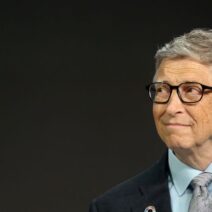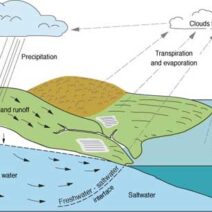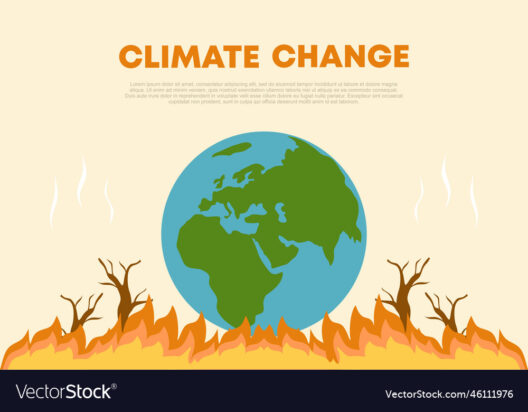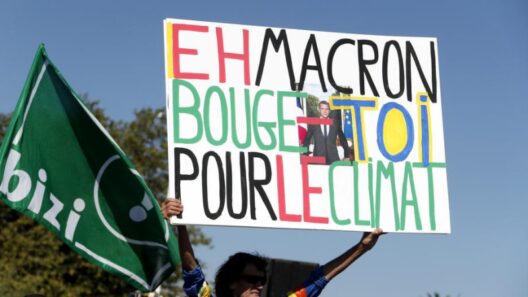The issue of climate change has morphed into a battleground of narratives, with political factions vying for dominance and control over the discourse. At the heart of this conflict lies the question of media integrity, particularly the insinuation that certain factions, including prominent Republican figures, influence news outlets to disseminate misleading information about global warming. This inquiry unfolds like a complex tapestry, woven with threads of political interests, economic motivations, and ethical considerations.
To understand the metaphorical machinery fueling this phenomenon, one must recognize the role of news outlets as both watchdogs and lapdogs in the arena of politics. A watchdog barks to alert the public to danger, while a lapdog might sit quietly, its loyalty unquestionable. Some argue that a significant number of media entities have become lapdogs for vested interests, susceptible to financial incentives that challenge their journalistic integrity. This raises a critical concern: are these outlets being bribed, or is it a more insidious relationship based on mutual interests?
Historically, there has been a conscious effort by certain Republican leaders to foster doubt about the scientific consensus on climate change. This skepticism serves a dual purpose: it appeases the interests of fossil fuel industries, which often contribute substantial funding to political campaigns, and it resonates with a political base that harbors reservations about government intervention in the market. The dialogue surrounding climate change is not merely a discussion about environmental preservation; it is intricately linked to economic ideologies and the rhetoric of freedom versus regulation.
For example, consider the political rhetoric surrounding climate change as a pendulum swinging between two extremes. On one end, you have fervent advocates for immediate action, whose voices often get drowned out by a cacophony of counter-narratives positioning climate change as an exaggerated crisis—an argument frequently supported by select news outlets. These counter-narratives can liken climate change to a bedtime story told by an overly enthusiastic parent, laced with sensationalism but lacking necessary substance. The simplification of complex scientific data into digestible soundbites can lead to the public’s misperception of the true urgency in combating global warming.
This manipulation is often propagated by a symbiotic relationship between certain political figures and media outlets. It is a relationship akin to a dance, where the steps are choreographed to promote specific ideologies. Politicians may express gratitude for favorable coverage, creating an atmosphere where biased reporting feels justified—or perhaps even essential for survival in a media-dominated age. The pivotal question arises: do media outlets capitulate to bribes, or do they voluntarily align with an ideological agenda rooted in their own editorial policies and audience preferences?
Furthermore, the emergence of misinformation campaigns further complicates this landscape. In an age where digital platforms can amplify rumors, the specter of bribery takes on a new form. While financial incentives may play a role in this interaction, a pervasive culture of information manipulation often leaves the impression that news is for sale, irrespective of ethical considerations. This culture can cultivate a fertile ground for organizations that disseminate disinformation under the guise of credible journalism, eroding trust in traditional media.
Moreover, probing deeper into this issue necessitates an exploration of corporate interests. The fossil fuel industry serves as a powerful lobbying force, spending millions to shape public perception and influence legislative outcomes. If one were to examine this interaction closely, it may resemble a Faustian bargain: support and funding for select media outlets in exchange for messaging that stifles climate action. This idea, while daunting, does not merely hinge on conspiratorial narratives but invites critical scrutiny regarding the intersection of money, media, and morality.
Transitioning from the political to the personal, the implications of such narratives seep into our daily lives, altering perceptions of urgency surrounding climate change. This phenomenon can create a societal cognitive dissonance. On one hand, scientists warn us of impending doom due to rising temperatures and extreme weather events; on the other, certain media narratives foster a comfortable belief that such issues are exaggerated—a mere inconvenience rather than a looming crisis. This tension generates a paradox that ultimately hampers collective action.
As the call for accountability grows louder, it’s essential to recognize that not all media outlets succumb to these pressures. Several organizations aspire to uphold journalistic integrity, diligently fact-checking claims and providing balanced coverage. However, these voices often struggle for visibility in a landscape littered with sensationalism. Thus, consumers of news are left in a state of confusion or worse, apathy, about the reality of climate change.
In conclusion, the question of whether Republicans bribe news outlets to lie about global warming transcends the surface-level inquiries into financial motives. It delves into the murky waters of media ethics, corporate influence, and the role that political loyalties play in shaping public discourse. Acknowledging the complexities surrounding this issue is crucial for fostering a more informed and engaged citizenry. A wakeful society is one that challenges narratives, holds media accountable, and demands a truthful portrayal of the stakes involved in climate science. Only then can we dismantle the barriers that obscure the truth and galvanize collective action against the existential threat of climate change.







